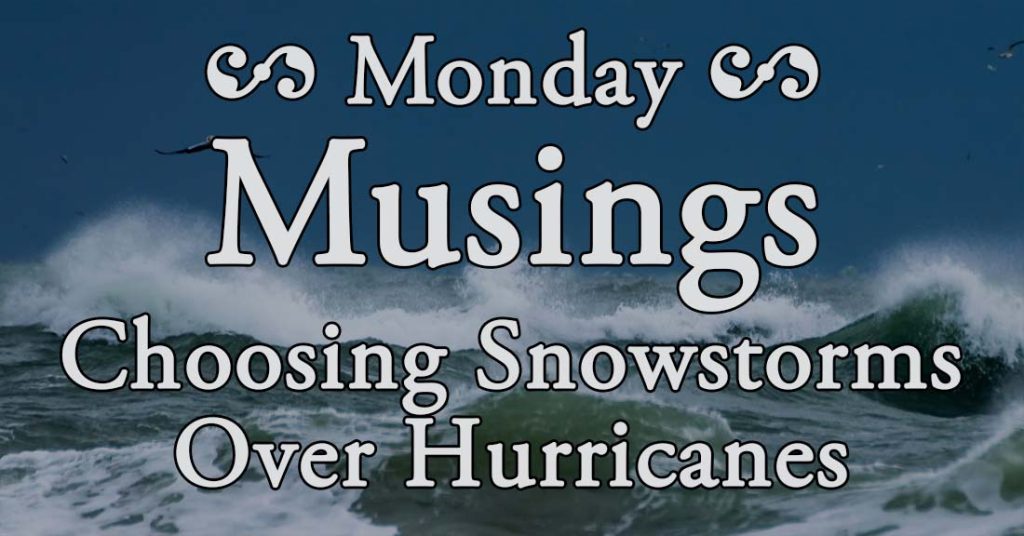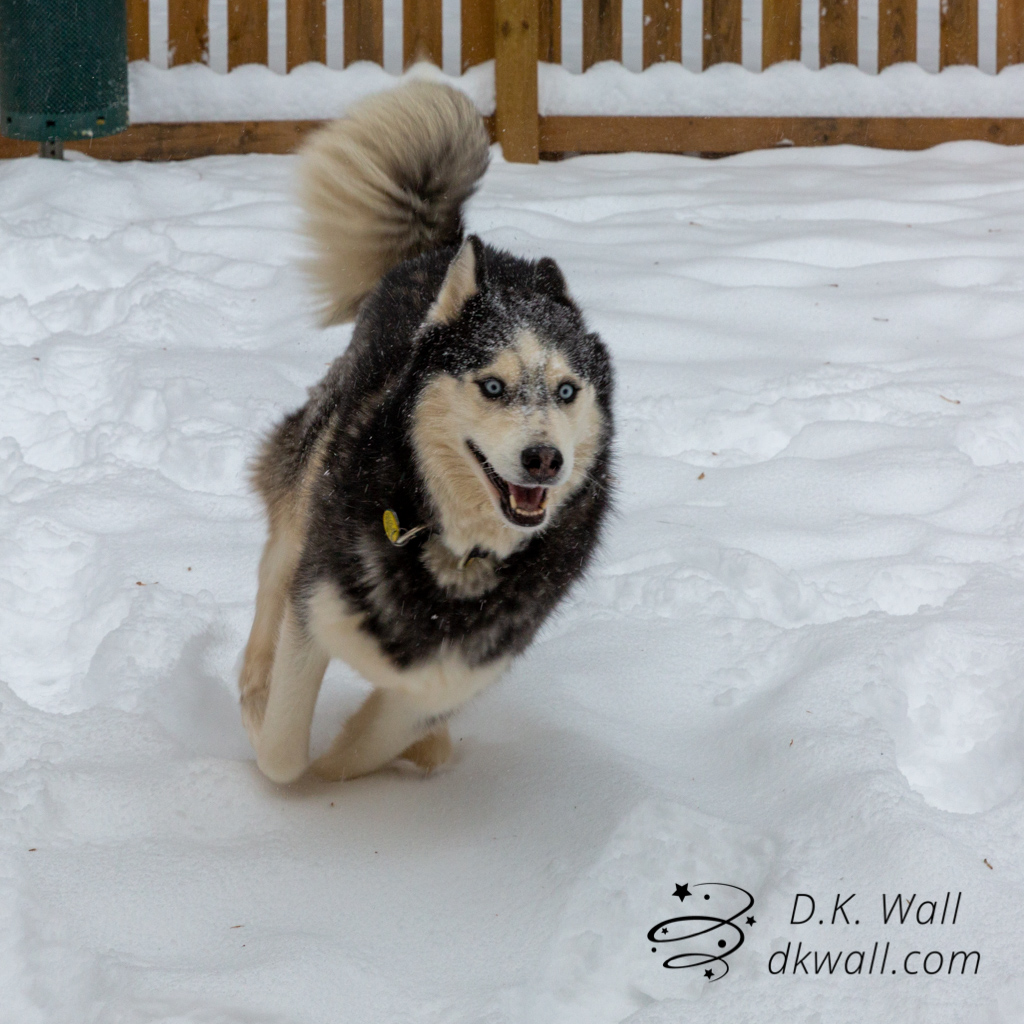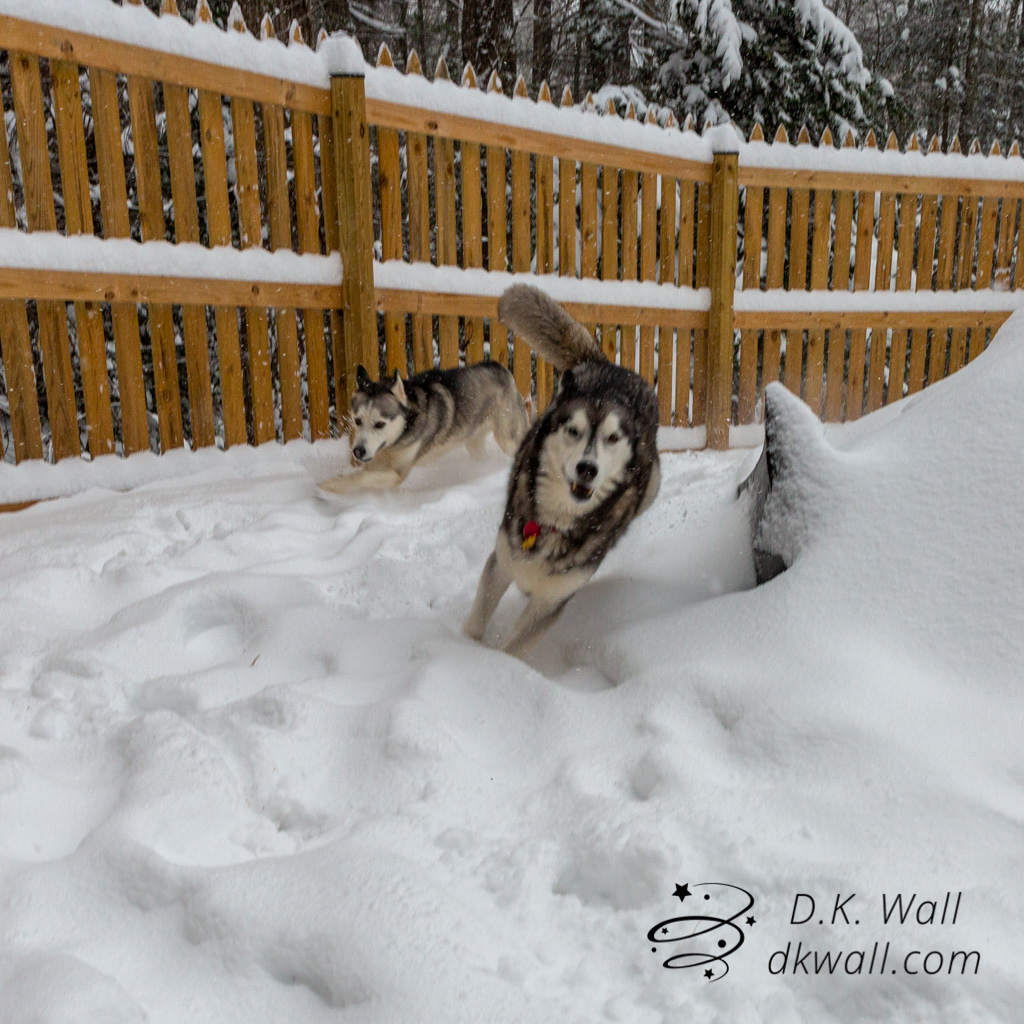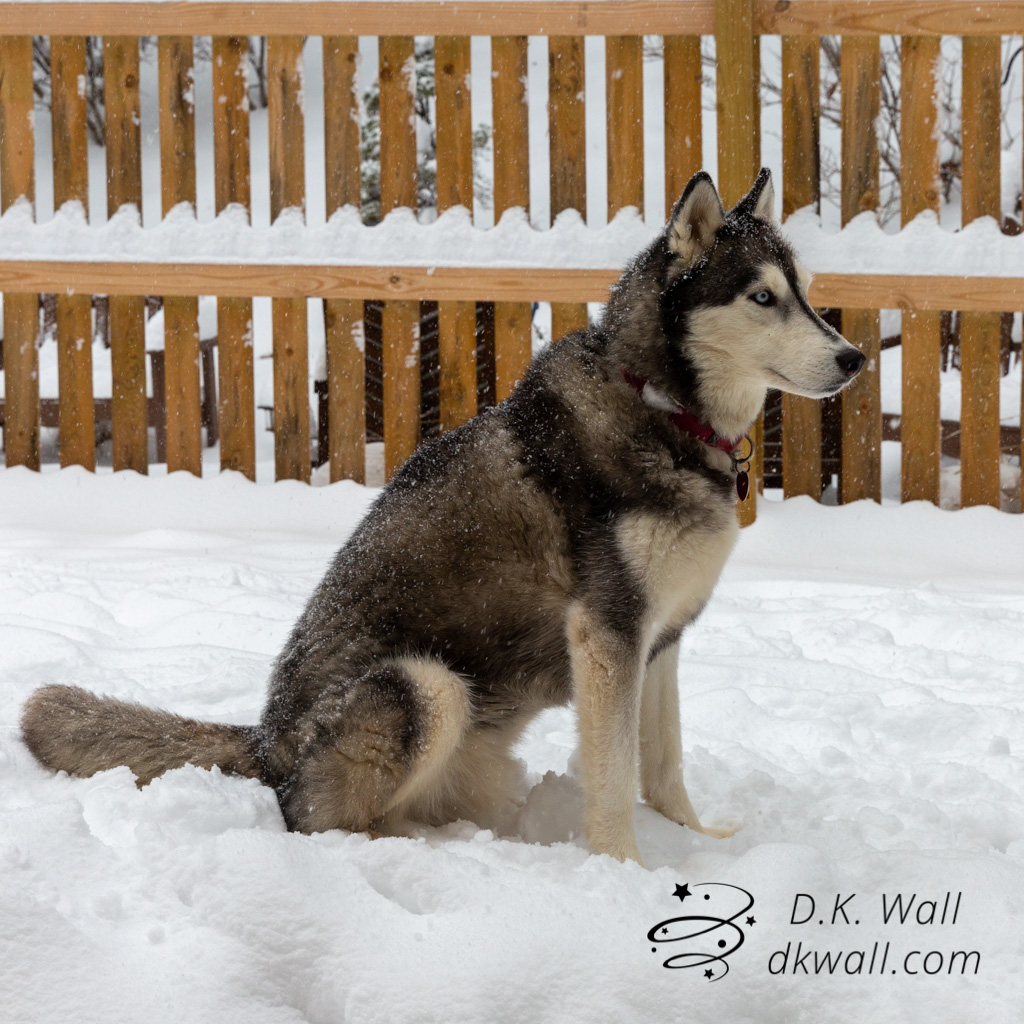Share This Musing
Musing: Choosing Snowstorms Over Hurricanes
Stop stalking me, Jim Cantore. When we moved back to Asheville from Murrells Inlet SC, I thought I had left you behind with the hurricanes. Saturday, just as we preparing for a winter storm here, I see this:
Don’t get me wrong—I like Cantore. Anyone who makes a career of running to disasters gets a thumbs up from me, but his arrival reminded me of the fun of hurricanes.
Before I begin, I want to make a plea that will doubtless fall on deaf ears—don’t be a topper. I know some of you have survived stronger hurricanes and then lived for months in FEMA trailers feeding a dozen orphans while hunting for food with a dull pocketknife and cooking over fires started with flint.
I haven’t.
The worst natural disaster I survived was Hurricane Hugo. Sure, it was a legendary storm, but I was 200 miles inland. I slept through it. I didn’t know it had happened until I went outside the next morning. Of course, my Ever Patient Partner in Life didn’t sleep a wink, a fact I’ve never heard the end of.
As a storyteller, I could make our tale of survival in the aftermath sound impressive. We were cut off from modern conveniences. We ventured out on foot to forage for food and then cooked what we scavenged over an open fire. The military descended on our city to restore order.
As I always warn you, though, my stories are totally true—except for the parts I make up. While we didn’t have electricity for five days, we had running water and telephone (landline since Hugo was long before cell phones were common). Our food came not from hunting but by walking two blocks to a grocery store. We cooked over an open flame, though that was a neighbor’s grill. The National Guard directed traffic because the winds destroyed virtually every traffic light in Charlotte.
So, yes, we had a few challenging days, but we didn’t suffer like the people of McClellanville SC, the town that was bullseye for that storm.
Other than that, every other hurricane experience I had was dealing with rain and wind from the remnants of a storm. We truly did not understand hurricanes when we moved to Murrells Inlet SC in 2019. Moving from a nearly 5,000 foot elevation on the edge of the Great Smoky Mountains National Park to a seven-and-half foot elevation bordering a salt marsh was a radical charge. The “half foot” sounded irrelevant to me, but I learned it mattered. To keep our story simple, though, let’s call it seven.
A quick explanation to illustrate our naivety. When we lived in the mountains, we didn’t really care what the phrase “sea level” meant. Zero foot elevation, right? The level of the sea. How hard is that?
But when we lived there, it became important. Were we seven feet above the low tide? The high tide?
The answer? Neither.
Sea level refers to the mean sea level, or roughly halfway between the low and high tide. It’s actually more complicated than that since the ocean isn’t level, but close enough. This isn’t science class, which is good because I would be woefully unqualified to teach. If I was, though, I would have a word problem like this on an exam:
If the normal difference between low and high tide in the Murrells Inlet area is about six feet and sea level is the average between low and high tide, how close does high tide come to a house at a seven-foot elevation?
The answer, for those of you who don’t like word problems, is four feet (The average of zero and six is three. Seven foot elevation minus three foot average sea level equals four). At least, during a normal high tide, but we’ll come back to how much variance exists in normal tides. First, though, I should mention the house was on the “high” spot of land.
Technically, we owned just over an acre of land. At high tide (ahem—normal high tide), the marsh inundated two-thirds of that. Only a small portion, including the house, was dry. Our fence marked the normal high tide mark and everything outside it was wetlands. A splendid home for crabs, herons, and snakes, but not so great for humans.
I love sharing my home with wildlife, so that was fine. I never complained about bears and bobcats in the mountains, so no creatures living in the marsh bothered me. I only mean mucking through the pluff mud beyond the fence with creatures snapping at your feet isn’t the same as grass tickling your bare feet. (Alligators, for the record, live in fresh water, not salt water, so we didn’t have them in our backyard).
Then I learned about King Tides. You see (said the temporary science teacher) tides vary throughout the month and even the year. Certain tides, known as Kings, are much higher than others—one to two feet higher.
Back to our math problem:
If a normal high tide brings water within four feet of a house, how close does the water come if the King Tide is a foot higher than normal?
Correct. Four feet minus one foot equals three feet. I’ll let you handle the two-foot King Tide calculation for extra credit.
I’m betting that extra half foot in elevation is making sense now too.
When the King Tides happen, area roads flood. Water that normally came to our fence drifted inside the perimeter.
I can also assure you that new-to-coastal-living homeowners wonder what happens during a hurricane. We sure did.
Our first hurricane was Dorian, a massive Category 5 storm with 185 mph wind gusts. She decimated the Bahamas and aimed for us. The governor ordered mandatory evacuations. Hotels, motels, and campgrounds closed. The normally bustling Grand Strand became a ghost town.
Hurricanes, though, are funny creatures. They are slow, lumbering monsters that meander unpredictably. You spend days waiting, watching projections, and wondering if they will or won’t strike. I learned in those waiting days what people meant when they said it was like being stalked by a psychotic turtle.
As she neared us, we nervously asked our neighbors where to go. To our surprise, they answered—don’t leave. Based on their decades of coastal-living experience, they didn’t feel threatened.
Now I know what you’re thinking. I thought the same thing. I didn’t want to be “that guy.” You know, the one on TV who says I wish I had evacuated.
But I also understood the logic. We weren’t on the ocean. We could see ocean-front houses across the salt marsh from us, but the marsh and those barrier islands protected us. Unlike the beach, we didn’t get big crashing waves. More importantly, Dorian has lost her bluster before she approached. She was still a hurricane, but not as powerful as she had been.
While we were in a mandatory evacuation area, the dividing line was only a couple hundred feet away. No one, not a single person in our neighborhood, left.
So we stayed.
The night before it hit, we went to a local restaurant (that was also inside the mandatory evacuation zone, but didn’t close). We ate dinner at the bar and chatted with locals (tourists were long gone). None of them expressed concern. We felt confident. Nervous, but confident.
And they were right. The hurricane ended up being largely a non-event for our area. We were glad we stayed.
We did have a little excitement during Dorian. A couple of large trees fell across the only exit from our neighborhood before Dorian made landfall. I carried my chainsaw and joined the others in our attempt to move the hundred-year-old oaks.
After much noise, sweating, and grunting, we accomplished almost nothing. At our pace, we would have removed the tree in a week or two.
Fortunately, two firefighters arrived. They took one look, walked back to their truck, and extracted a serious saw, much bigger than my puny Lowe’s special.
Now I know the old saying that size doesn’t matter. That it’s all about technique. Let me provide clarity—these guys had us on both counts. Size and skill.
l’m talking about chainsaws, folks, chainsaws.
In minutes, they cleared the road. Trying to remain relevant, four or five of us would drag a log out of the way. One firefighter would grab another and toss it like a softball. With our team effort, we had the road open. Without us, it would have taken those firefighters at least another minute or two. Probably. Maybe less.
We made it back to the house and rode out the rest of the storm uneventfully. Well, not totally. We were renovating the house. Large sections of the exterior awaiting installation. Hastily arranged tarps did the best they could. We passed the time mopping water.
Next up was Bertha. Came. Went. I don’t even remember any details. We were becoming hurricane veterans. We could handle anything.
And then came Isaias.
The first problem with that storm was the blasted name. We all mangled it, even the professionals:
Pronouncing #Isaias really isn’t that hard, but mental fatigue was getting the best of me last night. Watch this ??#scwx #ncwx pic.twitter.com/nFVtrW3Hj3
— Ed Piotrowski (@EdPiotrowski) August 4, 2020
The second problem was it was never that powerful, remaining a Category 1 storm. That was deceptive, though, as it caused significant damage. Categories refer only to wind speed and ignores other, often more destructive, components of a hurricane.
The worst issue, though, was the storm’s unpredictability. Forecasters struggled to pin down the path. Florida braced for it. Georgia. South Carolina. North Carolina. With such unknowns, it was difficult to decide who should evacuate. The governor issued no orders for our area.
In the end, it ran just off the coast and came ashore north of us, causing significant damage there. That path spared us the worst of the wind, but not the water. Those living inland even just a block barely remember the storm, but those of us on waterfronts were impacted.
Isaias pushed a storm surge of four feet onto our shore. As storm surges go, that wasn’t so bad, but the surge is on top of whatever water is already there. The surge arrived during high tide. And not just any high tide, but the King Tide.
Final exam, class. If a normal high tide brings water within four feet of a house and a King Tide raises it a foot higher, what happens if you add four feet of storm surge?
Bet that extra half foot really means something now.
The water rose beyond our fence, covered our yard, and crept into the garage (which sat at an eight-foot elevation—another half foot we were thankful for). We were never in any danger because our house, like most coastal homes, sat on stilts. Other than having to clean the pool and pick up debris from the yard, we had no real damage.
But watching water rise and rise is unnerving.
A big one will hit that area again some day. Another Hazel, Hugo, Florence, Floyd, Matthew, or the unnamed 1899 killer. Hugo’s nineteen foot storm surge dwarfed Isaias’s four, a horrifying thought.
We decided we didn’t want to be there for it. Plus, we missed our mountains. So here we are back in Asheville.
So welcome to Asheville, Jim Cantore. Enjoy our snow. As big weather events go, it’s not so bad.
It’s sure not a hurricane.
Interesting Links: Americans Reading Fewer Books
Considering how homebound many of us were last year, this survey surprises me. Gallup reports the lowest average in years for the number of books read per American adult. In particular, they noted a sharp drop in frequent readers (more than 10 books a year) and in college graduates.
I’m curious about your reading habits. Did you read more or fewer books in 2021 than compared to years past?
Books Read: The Judge’s List
I read about 100 novels a year and share the best of those. In John Grisham’s latest novel, a woman accuses a sitting judge of being a serial killer. Click the cover above for a synopsis of the story.
Vocabulary Word Of The Week: Virga
Count this as science AND vocabulary wrapped together. Virga refers to precipitation that evaporates before it hits the ground. This happens at the beginning of a precipitation event and cools surface temperatures since heat is used to evaporate the falling moisture. That happened for us Saturday as the snow began to fall but hit the warmer (slightly above freezing), dryer air below. I could watch the snow disappear before it hit the ground, at least until that heat was sucked away and the flakes survived the entire fall.
The word traces back to the Latin virga which has a primary meaning of branch or rod, but also meant a swath of rain visible in the sky.
Gratuitous Dog Picture
The first real snow of the year fell in Asheville this weekend. Since we lived in Murrells Inlet SC the last two winters, this is the first snow the dogs have seen since we lived in Maggie Valley. Happy doesn’t even begin to explain a Siberian Husky’s attitude toward snow. I can’t just share one gratuitous dog photo this week, so enjoy:
Background title image is courtesy Barth Bailey
Subscribe to the Random Musings
Want to be sure never to miss a Musing? Subscribers will be notified when I post a random observations on life or a short story. The email is absolutely FREE and you my unsubscribe at any time.









When I was much younger, I went to college in Houston. There was a hurricane that hit and did a lot of damage when I was visiting my parents much north of Houston. I was lucky because my car wasn’t flooded, and my apartment wasn’t damaged. But my neighbors told me there was no power for 3 days, and the street was flooded up to the curb. And there were piles of dead tree limbs that sat around for a year, literally, before the city removed them.
So when I graduated, I moved north and resolved to never again live in a coastal area. And this was before I was aware of the danger of climate change.
You were wise to move inland. And those are great pics of the dogs!
We got our first snowfall here in Ohio as well yesterday. We lost our beloved Bandit last August (Alaskan malamute). I would always post his zoomies in the first snow. We miss him dearly. Our other 2 still with us are not as excited over the snow, Brady is part Pyrenees so he does like it but our blind 13 year old lab mix Sophia is not impressed. Thank You for sharing your pack playing in the snow.
My 1st thought when you moved was, “Oh my God what did you do?” I live in a coastal community and know exactly what happens there. I think I even mentioned the same on one of your early posts about moving to that area. So glad that you and the pups have gone back to the mountains. Everyone is going to be much happier. Now you can watch the flooding on the news instead of in your own backyard. Siberian huskies might be OK with stinky mud but snow is much better … and cleaner. Glad that you and the herd have found a sweet spot finally.
Facebook reminded me (with a picture of my late Sib Jericho) that we had a snowstorm 9 years ago on this date. Gotta love those FB memories. He would be a happy Sib today too. That dog could never get enough snow.
I live in coastal Alabama so I know the joys of hurricane season all too well. On the flip side, I can count on one hand the amount of times it has snowed here so we do have that going for us.
Great shots, from wild and crazy Landon to Frankie’s ‘I’m in no big hurry’ saunter. The love of snow is so much in their DNA.
(Every time a picture of Landon is up, my roommate asks if it’s a shot of Juno. They could’ve been twins, except for that tail.)
It looks like the herd REALLY had a ball in the snow!!!!! I too LOVE all the pictures!!!
Great pictures!! Miss Ruby had a great time in the snow here in NY. Snow slides and doggie angels all over the state park today.
Great snow pix!
My husky, Rocky, is 13 years old, but when he is in the snow he is like a young doggie again. It is amazing to see his reaction when the door opens and he sees the ground all covered in white. Whenever we have a “weather event” in the northeast, the weather forcasters scare us into believing that the world will almost come to an end with the next storm.